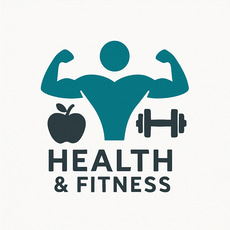Understanding Sexual Health
Sexual health is an essential part of overall well-being, yet it's often misunderstood or overlooked. This blog breaks down the basics of sexual health, including consent, STI prevention, emotional well-being, and the importance of regular checkups. Whether you're seeking clarity or aiming to make informed decisions, this guide offers practical insights everyone should know.
SEXUAL HEALTH
5/15/20253 min read
Understanding Sexual Health: What Everyone Should Know
Sexual health is a vital part of overall well-being, yet it’s often overlooked or surrounded by misconceptions and discomfort. From physical safety to emotional wellness and personal rights, sexual health covers more than just preventing infections—it’s about having a respectful, informed, and empowered approach to your own body and relationships.
Whether you're just beginning to explore this topic or seeking a better understanding, here’s what everyone should know about sexual health.
What Is Sexual Health?
According to the World Health Organization (WHO), sexual health is not just the absence of disease or dysfunction. It’s a state of physical, emotional, mental, and social well-being related to sexuality. It involves:
Safe and pleasurable sexual experiences
Freedom from coercion or violence
Access to accurate information and healthcare
Respect for bodily autonomy and consent
Sexual health is deeply personal, and maintaining it requires education, communication, and proactive care.
1. The Importance of Consent
Consent is the foundation of healthy sexual experiences. It must be clear, enthusiastic, and freely given—every time. Understanding consent helps protect your rights and respects those of others.
Key points about consent:
It can be withdrawn at any time.
It must be mutual and cannot be given under pressure, manipulation, or intoxication.
“Yes” to one activity doesn't mean “yes” to all activities.
Educating yourself and others about consent builds safer, more respectful relationships.
2. Know Your Body
Understanding how your body works is essential to recognizing what’s normal and when something might be wrong. This includes:
Knowing your anatomy
Understanding your menstrual cycle (if applicable)
Recognizing signs of infections or other concerns
Being aware of your sexual responses and comfort levels
Body literacy empowers you to communicate your needs, make informed decisions, and advocate for your health.
3. Protecting Against STIs
Sexually Transmitted Infections (STIs) can affect anyone who is sexually active, regardless of age, orientation, or number of partners. Many STIs have no symptoms but can still be transmitted and cause long-term complications if untreated.
Prevention tips:
Use condoms or dental dams consistently and correctly
Get regular STI screenings based on your level of sexual activity
Talk openly with partners about STI status and sexual history
Get vaccinated (e.g., for HPV or hepatitis B)
STI testing is quick, confidential, and often available at low or no cost.
4. Birth Control and Family Planning
Whether you want to prevent pregnancy or prepare for it, understanding contraceptive options is key to sexual autonomy.
Common methods include:
Condoms
Birth control pills, patches, rings
IUDs and implants
Fertility awareness methods
Permanent options (e.g., sterilization)
No method is one-size-fits-all. Speak with a healthcare provider to find the best fit for your body, lifestyle, and goals.
5. Emotional and Mental Aspects of Sexual Health
Sexual health isn’t just physical—it’s closely tied to mental and emotional well-being. Factors like self-esteem, past trauma, relationship dynamics, and cultural beliefs all influence how we experience our sexuality.
Healthy sexual wellness includes:
Feeling safe and respected in intimate situations
Being able to express your desires and boundaries
Navigating challenges like performance anxiety, body image issues, or trauma
Mental health support and counseling can play a key role in developing a healthy sexual identity and addressing concerns.
6. Sexual Orientation and Gender Identity
Everyone has a right to understand and express their sexual orientation and gender identity without fear of judgment or harm. Sexual health is inclusive and should affirm all identities—LGBTQ+ or otherwise.
Creating supportive environments and seeking inclusive healthcare can greatly improve well-being and reduce disparities among marginalized communities.
7. Regular Sexual Health Checkups
Just like any aspect of health, routine checkups are important for early detection and prevention. This can include:
STI screening
Pap smears and HPV tests
Prostate exams (if applicable)
Breast and testicular self-exams
Conversations about sexual concerns or function
If something feels off—pain, discomfort, changes in libido—don’t hesitate to talk to a healthcare provider.
8. The Role of Communication
Open communication with partners about boundaries, desires, and concerns is essential. Healthy communication builds trust, strengthens relationships, and reduces misunderstandings.
It’s okay to talk about:
What feels good or doesn’t
Birth control and STI protection
Past experiences or trauma
Relationship expectations
Good sexual communication is a skill, and like any skill, it can be learned and improved over time.
9. Myths and Misconceptions
Unfortunately, sexual health is often shaped by myths, stigma, or lack of education. These misunderstandings can lead to fear, shame, or risky behavior.
Examples of common myths:
“You can’t get an STI from oral sex.” (False.)
“Only people with multiple partners get infections.” (False.)
“You’ll always have symptoms if you have an STI.” (False.)
Getting your information from trusted, evidence-based sources is crucial.
10. Empowerment Through Education
Knowledge is empowerment. Comprehensive sexual education helps individuals of all ages make informed, confident decisions about their health and relationships.
Sexual health education should be:
Age-appropriate
Inclusive of all identities
Based on facts, not fear
Respectful of individual values
When people are informed, they’re better equipped to protect themselves and others.
Final Thoughts
Understanding sexual health is about more than biology—it’s about your rights, your safety, and your quality of life. It’s an ongoing journey that involves learning, communication, self-awareness, and care.
By fostering honest conversations and seeking accurate information, we can break the silence, reduce stigma, and build a healthier, more informed society.
Sexual health is for everyone—and everyone deserves to understand it.
